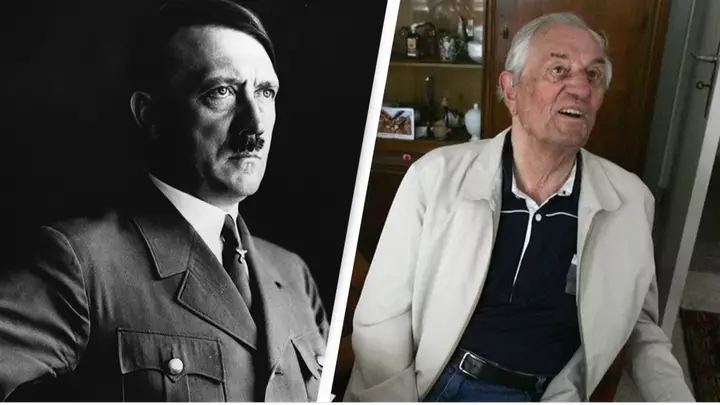One of Adolf Hitler’s bodyguards offered a unique insight into the dictator’s last moments in his bunker in World War Two.
It was the final stages of the war in Europe, with the Red Army surrounding Berlin and commencing the final destruction of the Third Reich.
Some estimates suggesting that some 81,000 Soviet soldiers died in this final battle, with Nazi losses estimated at around 100,000 killed.
As this final stage played out in the streets above, Hitler was secreted in the Führerbunker with his personal staff and bodyguards, including Rochus Misch.
Misch was a member of the 1st SS Panzer Division, which was assigned as the personal bodyguard to Hitler.
He survived the Second World War and his subsequent capture by the Soviet Union.
Upon his death in 2013 he was the last surviving person from the Führerbunker, and remained loyal to the Nazi dictator, describing him as ‘no brute’ and a ‘wonderful boss’.
Misch revealed some details about Hitler’s final minutes in the bunker in his autobiography – Hitler’s Last Witness: The Memoirs of Hitler’s Bodyguard.

After discovering that the Wehrmacht had failed to break the Soviet encirclement of Berlin, he described the reaction.
Misch wrote: “Hitler shook hands with Günsche [an SS officer] and told him that all soldiers were released from their oath of loyalty.
“Hitler had already told his adjutant that he did not want his body to be publicly abused as [Benito] Mussolini’s had been and that he wanted his corpse to be burned.”
Fascist dictator of Italy Benito Mussolini’s corpse was publicly displayed.
The book’s editor, Martin Mace, wrote: “Everyone in the bunker waited nervously. Then there was some commotion. The study door was opened and Misch looked inside.”

“Near her … the dead Hitler. His eyes were open and staring, his head had fallen forward slightly.”
Hitler and Braun both took their own lives on April 30, 1945.
Misch was later captured by the Red Army and was tortured by NKVD agents in Moscow for information about Hitler’s last moments.
After surviving nine years in a forced labour camp in the USSR he was released back to Germany and returned to Berlin in 1954.
Despite remaining unrepentant to the very end, he was never prosecuted for his role even after the fall the USSR in 1991.
In an interview in 2005, Misch deflected questions about his role in the Holocaust, saying: “That was never a topic. Never.”
Misch died in 2013, at the age of 96.
